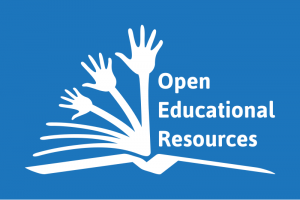
Image by Jonathasmello (CC-BY)
Open Education has a long history, and recent developments in open licensing and technology have taken the movement to a tipping point. “Open” has become the buzz word in many educational communities, and Open Textbooks especially has generated wide interest. Pilot programs like this one in Washington, have demonstrated tremendous cost savings potential compared to traditional textbooks. Entrepreneurs are investing more in innovative technologies, and in turn increasing the interactivity and distribution potential of open education platforms. These developments have led to what some call an “educational renaissance”, and has even prompted some states and the federal governments to incorporate OER in to the public education system.
The losers in this story are the publishing industry and their supporters, who have relied on a monopoly on copyrighted textbooks for profit. Their resistance to the flurry of OER efforts throughout the nation is perhaps the best illustration of the shifting landscape in education. The following are some prominent examples of this struggle:
Political Resistance:
In 2012, the Obama administration announced a landmark grant program totaling two billion dollars. The program would fund the development of innovative Community College programs through the Department of Labor, with the resulting resources openly published under the Creative Commons License. House Republicans responded with an attempt to explicitly prohibit the funding of Open Education from the relevant appropriations bill. Although open education ultimately won the day, two OER bills which were introduced a few years prior died in committee after failing to receive bi-partisan support.
In 2009, Texas passed one of the nation’s first Open Textbook legislations, thus diverting funds from traditional textbooks to develop open textbooks. Texas Board of Education member Geraldine Miller responded with a scathing article, expressing her “grave” concern for the new law. Miller reasoned that the OER would eliminate materials that are aligned with state standards, and allow questionable resources into the system. However, others suggest that her real concern was that the bill reduced the power of her board to approve textbook content, and shape a conservative curriculum.
More recently, the Minnesota Office of Higher Education made the interesting decision to prohibit its residents from participating in online learning. The State informed Coursera, a provider of free online courses, that it was illegal for Minnesota residents to access digital learning materials because Coursera never got permission to operate within the State. However, in the face of tremendous public backlash, the State quickly reversed its position, citing a decades old law that did not account for the availability of digital education.
Legal Resistance:
Four of the largest textbook publishers in the nation responded to this foundational shift in their industry by initiating a copyright infringement suit against open-textbook publisher Boundless. The complaint, filed in Federal District Court in New York in 2012, alleges that Boundless produces “shadow versions” of copyright works. The publisher’s main issue is with a technique called “alignment”, through which Boundless stitches together content from an array of open education resources to create a comparable version of a traditional textbook. The Publishers cite to the similarity in the resulting work as a form of stealing. The complaint also names ten anonymous defendants, which is speculated to be venture investors that have funded Boundless.




